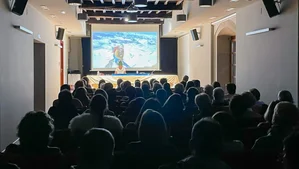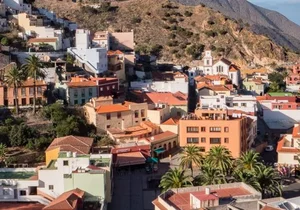The Evolving Role of Grandparents in Global Families: Challenges and Adaptations
In an era marked by globalization, migration, and changing family dynamics, the role of grandparents is undergoing a significant transformation. For expats in Spain and families around the world, understanding these shifts is crucial for navigating the complexities of modern family life.
Grandmothers as Caregivers: The Qiang Example
In rural China, Qiang grandmothers are at the forefront of this change. A recent study published in Gender & Society highlights the critical role these grandmothers play in supporting urban migrant workers and their families. Despite facing intense childrearing expectations and the pressures of state development policies, these grandmothers have forged "care circuits" to balance economic needs with the long-term goal of nurturing their grandchildren[1].
These women, often labeled as "backward" within the state's population discourse, strategically prioritize income-generating agricultural work while adapting their caregiving practices. This adaptability underscores the complex gendered and intergenerational power dynamics at play in migrant households.
Global Perspectives on Grandparenting
The experience of Qiang grandmothers is not an isolated phenomenon. A book titled Grandparenting in the 21st century: new directions, published by Cambridge University Press, emphasizes that grandparenting practices vary significantly across different societies and are influenced by broader societal changes and globalization. This global focus highlights that family relationships, including those between grandparents and their grandchildren, are constructed through interactive processes of negotiation rather than simply following cultural norms[2].
Intergenerational Relationships and Reciprocity
Contrary to the traditional view of older people as a burden, research on intergenerational relationships suggests a more reciprocal and dynamic interaction. Grandparents are not just caregivers but also active participants in family networks, contributing to and benefiting from these relationships. This perspective challenges the dominant policy concerns about an ageing society and instead focuses on the mutual support and exchange between generations[2].
Challenges for Expats and Global Families
For expats in Spain and other global families, these changes can present both opportunities and challenges. With increasing mobility and distance between family members, maintaining close relationships across generations becomes more complex. However, technology and global communication networks have also enabled new forms of connection and support.
Conclusion
The role of grandparents in the 21st century is a testament to the resilience and adaptability of family relationships. Whether it is Qiang grandmothers in rural China or grandparents in expat communities in Spain, these individuals are redefining what it means to be a grandparent in a globalized world. As families continue to evolve, understanding and appreciating these changes will be essential for building stronger, more supportive family networks.
About MovetoSpain.es
MovetoSpain.es is an independent data website that helps people move to, live in, and integrate into Spain. We use AI to gather data from around the web to provide you with the most up-to-date information.
Sources for this story:
Related Stories

Laredo Invited to the Piedra Fest: A Celebration of Tradition and Community
April 19, 2025

Weather and Celebrations: What to Expect During Holy Week in Spain 2025
March 11, 2025

First Screening of "Cinco Caminos" in Cantabria Held at Espolón
March 11, 2025

Vallehermoso Embarks on Ambitious Historic Center Rehabilitation Project
March 10, 2025

Celebrating Father's Day in Style: Exciting Events Across Spain and the Canary Islands
March 9, 2025
EuroMillions Results in Spain for Friday 18th
Friday, April 18th, 2025
Subscribe to Our Newsletter
Stay updated with the latest news and stories from Spain.
